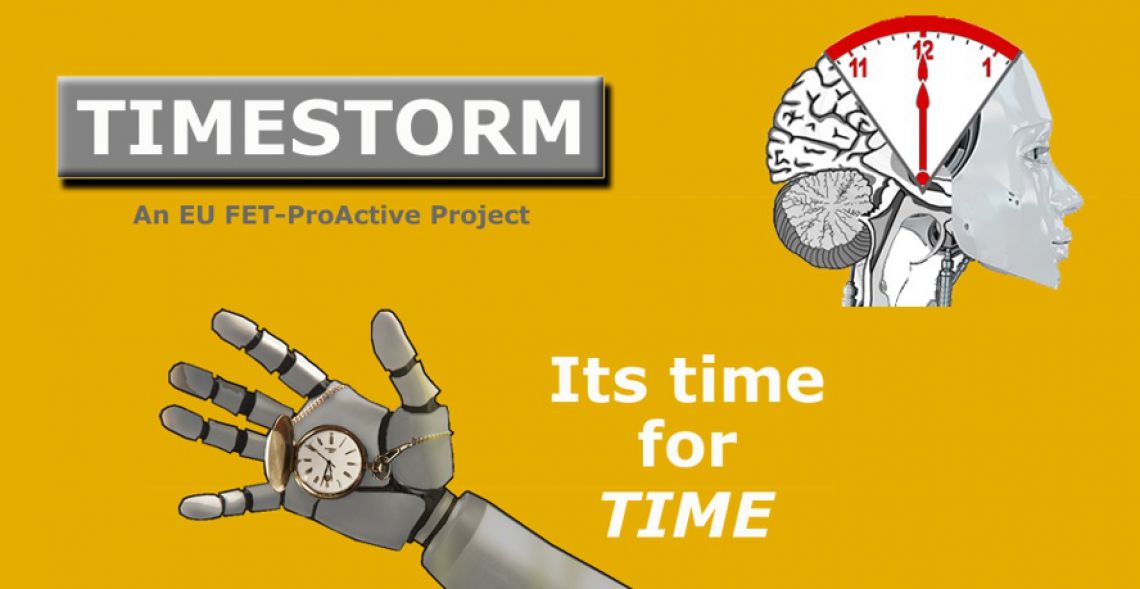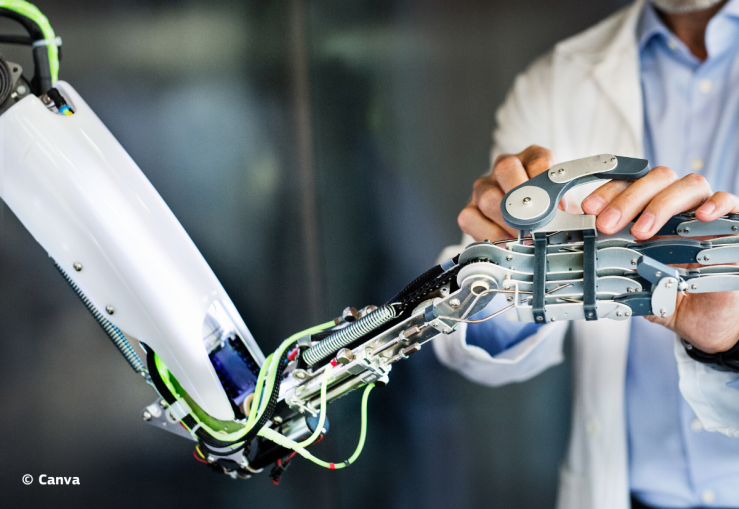Artificial Intelligence (AI) is often praised for its ability to make objective and rational decisions, unlike humans, who deal with reality in a subjective manner. The researchers from the Future and Emerging Technologies (FET) project TIMESTORM trained robots to learn some of these subjective abilities of humans, focusing on time-perception.

Although the FET-Proactive project TIMESTORM slightly reminds classical beginning of science fiction stories, which end with AI takeover (see e.g. a famous Czech theatre play called R.U.R., which coined the word “robot” into the languages all around the world), the goal of the project is to improve robots’ adaptability to the real world. New abilities should enhance their competences in helping people and thus provide general safety concerning the interaction with humans in accordance with Isaac Asimov’s Three Laws of Robotics.
TIMESTORM focuses on equipping artificial systems with human-like cognitive skills and tries to give them the time-perception ability. It aims to promote their intelligence beyond repetitive task accomplishment. Prof. Anil Seth from the Sussex University, who collaborated on the research, specified the nature of time perception:
"Humans – or animals – do not perceive time by having a clock in our heads, there are biases and distortions to how humans perceive time.
Time-perception refers to the subjective experience of duration of time. Previous researches proved that time is subjectively perceived not only by humans but also by other living organisms (including e.g. invertebrates), nevertheless the particular processes and abilities differ."
In order to understand time perception better, the scientists firstly examined how people can estimate the time duration of videos depicting daily tasks, taken from first-person perspective. The experiment proved that people experienced time duration differently from the real one, depending on how vigorous the presented scene was.
Based on this information, the researchers developed a system using deep learning that could simulate the human subjects’ perception of the video durations. The system helps robots to perform in a way that is closer to real human life. The researchers demonstrated their results by an activity, which requires an understanding of human time perception and planning; e. g. they let robots assist in meal preparation and serving food according to preferences of their owners.
Prof. Panos Trahanias, the coordinator of TIMESTORM project, concludes in his blog post:
"Despite the fact that there are numerous aspects of time yet to be explored and revealed, it is our strong belief that TIMESTORM can serve as the basis for natural, time-aware, human-robot symbiosis, even though the topic is so complex that further work is definitely needed to deliver mature and robust technology for the next generation of robots. We roughly estimate that it will be at least one decade before robots are routinely designed with the capacity to perceive time – but the market potential of these technologies is enormous."
Perception of reality as a crucial issue of AI
Robots process reality in a different manner than humans do. The basic problem of AI is that it usually get confused, when the information about the perceived reality is not coincident. Sometimes it happens also to humans – maybe you have already experienced it due to motion sickness, when the differences between neural information about real and perceived motion confuse the brain, and hence you feel nauseous. Nevertheless, human brain can deal with that informational inconsistency. On the contrary, robots in such situations do not work properly or stop to work at all.
Further research can give us even more answers and solution to these situations: TimeStorm’s follow-up project, ENTIMENT, funded by the FET Open / Innovation Launchpad program, developed software for programming robots with a sense of time usable e.g. for meal preparation applications; another Horizon 2020 project called SELFCEPTION designed an algorithm allowing robots to recognize themselves and make them self-aware and able to act with their body as humans do.
More information
Why are robots being train in self-awareness, article of the Horizon Magazine presenting the current research on robots’abilities within projects TIMESTORM, SELFCEPTION and ENTIMENT.
Robots in a rush: time-aware AI aids human-machine interaction, article about TIMESTORM project.
Background information
FET-Open and FET Proactive are now part of the Enhanced European Innovation Council (EIC) Pilot (specifically the Pathfinder), the new home for deep-tech research and innovation in Horizon 2020, the EU funding programme for research and innovation.

DISCLAIMER: This information is provided in the interest of knowledge sharing and should not be interpreted as the official view of the European Commission, or any other organisation.

